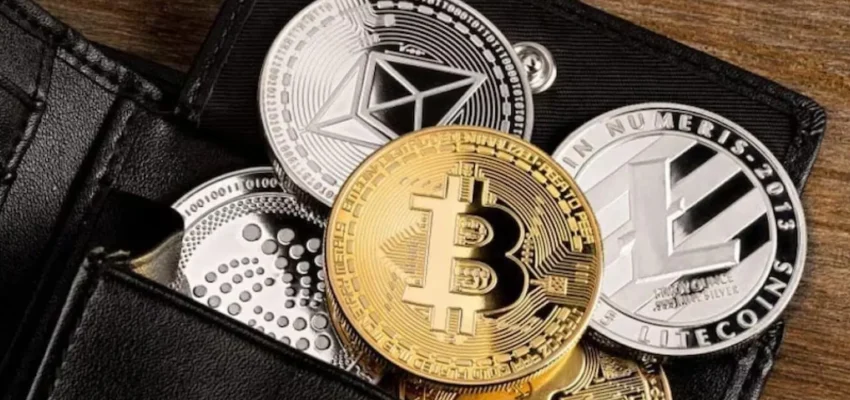Cryptocurrency has become an increasingly popular investment and transaction medium worldwide. However, one of the most crucial aspects of handling cryptocurrency is knowing where to store it securely. In this article, we’ll explore various storage options for your digital assets and provide insights into how people manage cryptocurrency in India Hindi.
Understanding Cryptocurrency Storage
Before diving into storage options, it’s essential to understand the concept of cryptocurrency storage. Unlike traditional currencies, cryptocurrencies are digital and require specific methods for secure storage. These storage methods are broadly classified into two categories: hot wallets and cold wallets.
Hot Wallets: Convenience Meets Accessibility
Hot wallets are online wallets that allow for quick and easy access to your cryptocurrencies. They are connected to the internet, making transactions swift and convenient. However, this accessibility comes with certain risks, such as vulnerability to hacking and malware attacks.
Types of Hot Wallets
Web Wallets: These are online services accessible via a web browser. Examples include exchanges like Binance and Coinbase.
Mobile Wallets: Wallets that operate on smartphones through dedicated apps, such as Trust Wallet and Mycelium.
Desktop Wallets: Software installed on your computer, such as Electrum and Exodus.
Using Hot Wallets for Cryptocurrency in India Hindi
In India, many investors prefer using mobile and web wallets due to their convenience and ease of use. For those seeking information in Hindi, resources and tutorials on using these wallets are increasingly available, providing guidance on managing cryptocurrency in India Hindi.
Cold Wallets: Security First
Cold wallets, also known as offline wallets, provide a higher level of security compared to hot wallets. They are not connected to the internet, which makes them less vulnerable to cyber threats.
Types of Cold Wallets
Hardware Wallets: Physical devices like Ledger Nano S and Trezor that store your cryptocurrency offline.
Paper Wallets: Physical printouts of your private and public keys, which you can store in a safe place.
Offline Software Wallets: Software installed on a device that is not connected to the internet, ensuring enhanced security.
Cold Wallets and Cryptocurrency in India Hindi
For individuals in India seeking maximum security for their investments, cold wallets are a preferred choice. With increasing awareness and resources available in Hindi, users can find comprehensive guides on setting up and using cold wallets to manage their cryptocurrency in India Hindi.

Custodial vs. Non-Custodial Wallets
Another critical consideration is whether to use custodial or non-custodial wallets.
Custodial Wallets
Custodial wallets are managed by third-party services, often exchanges, that hold your private keys. While convenient, this means you are trusting a third party with your assets.
Non-Custodial Wallets
Non-custodial wallets, on the other hand, give you full control over your private keys. This ensures that you are the sole owner of your cryptocurrency, enhancing security and autonomy.
Choosing the Right Wallet in India Hindi
For Indian users, deciding between custodial and non-custodial wallets depends on their comfort with managing security. Many resources in Hindi explain the pros and cons of each, helping users make informed decisions about their cryptocurrency in India Hindi.
Multi-Signature Wallets: Enhanced Security
Multi-signature (multi-sig) wallets require multiple private keys to authorize a transaction, providing an extra layer of security. This is particularly useful for businesses or individuals holding large amounts of cryptocurrency.
Multi-Sig Wallets and Cryptocurrency in India Hindi
For advanced users and businesses in India, multi-sig wallets offer a robust solution for securing funds. With growing information available in Hindi, users can learn to implement and use multi-sig wallets effectively for their cryptocurrency in India Hindi.
6. Best Practices for Cryptocurrency Storage
Regardless of the type of wallet you choose, following best practices is crucial for ensuring the security of your digital assets:
Regularly update your wallet software.
Use strong, unique passwords and enable two-factor authentication (2FA).
Keep your private keys secure and never share them.
Back up your wallet and store the backup in multiple secure locations.
Best Practices for Cryptocurrency in India Hindi
For Indian users, adhering to these best practices is vital. With resources and guides available in Hindi, users can access step-by-step instructions to safeguard their cryptocurrency in India Hindi.
Storing cryptocurrency securely is paramount to protecting your digital assets. Whether you prefer the convenience of hot wallets or the security of cold wallets, understanding the options available and following best practices will help you manage your cryptocurrency effectively. For users in India, resources in Hindi are increasingly accessible, providing valuable guidance on managing cryptocurrency in India Hindi. By staying informed and vigilant, you can ensure the safety of your investments in the dynamic world of digital currencies.














